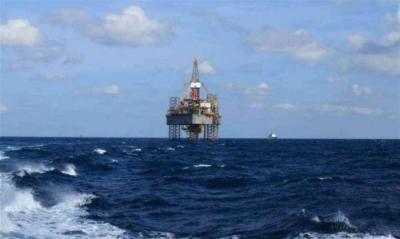While all indicators and statements point to optimism and progress in the maritime border demarcation issue, the difference between Lebanon and Israel is that the latter negotiates from a standpoint of known quantities, whereas Lebanon negotiates based on uncertain estimates. Tomorrow, it might claim a victory by securing full control of the Qana field, relying on geological surveys from two decades ago, but it's uncertain what resources this field actually contains. Will it be regrettable later if Lebanon forfeits its rights to the Karish field?
Oil and gas economics expert Fadi Jawad confirmed to "Al-Joumhouria" that the signing of the maritime border demarcation agreement between Lebanon and Israel is nearing completion and will occur in the coming days. He revealed that the American mediator, Amos Hochstein, will launch a new line of agreement between Lebanon and Israel that will secure Israel's economic rights over the Karish field in the water's surface, resolving any disputes over a shared reservoir in the deep sea, in exchange for Lebanon receiving the entire area of Block 9, which is rumored to contain a field called "Qana" extending into the Israeli Block 72, as outlined in the demarcation.
However, the surprise, according to Jawad, is that the Qana field will be re-demarcated within the deal to ensure that Block 72's boundaries remain untouched, leading to a new delineation of the undiscovered Qana field due to the absence of exploratory wells within its limits. Experts relied on geological surveys conducted across all Lebanese blocks two decades ago, indicating a hydrocarbon wealth, with the most illustrative example being Block 4, where the Tungsten explorer drill yielded negative results according to Total's assessment.
In this context, Jawad questioned, "What will the state's reaction be if the promised Qana field results are negative, just as in Block 4? Will we go back to demand what we've squandered?" Regarding currently advantageous proposals for Lebanon, Jawad believes that negotiations have become political, sidelining technical aspects, based on the military leadership's decision to back political resolutions in the maritime boundary case. Therefore, he argues that the successful proposal is to sign the demarcation agreement as soon as possible and immediately open the contract for the remaining blocks to begin drilling and exploration swiftly, in order to catch up with neighboring countries that are now exporting gas to Europe, which is anticipated to face a severe crisis this winter, beyond anyone's ability to remedy, except for Iran which could immediately address Europe's energy shortfall following the nuclear agreement.
On the other hand, Lebanon's loss has stemmed from its two-decade delay in exploiting its hydrocarbon wealth and the additional 3 to 5 years required for it to be ready to join the ranks of oil and gas producing nations. He emphasized that waiting any longer is futile, given the urgent need for gas in the world and Europe.
### Lebanon's Wealth: $400 Billion
In numerical estimates, Jawad revealed that studies indicate there are approximately 32 trillion cubic feet of gas in Lebanon's maritime area, currently valued in excess of $400 billion, given the skyrocketing gas and oil prices. He confirmed that these figures are not final and will change once exploratory drilling begins, providing actual quantities and valuations.
In response to a question about what has hindered exploration in the remaining 8 blocks, which have no disputes surrounding them, and linking them all to the fate of maritime boundary demarcation with Israel, Jawad attributed the stagnation of the exploration project to an American decision to freeze the activities of consortium companies and dissuade major firms from bidding on the remaining blocks last month after the bid submission deadline, along with freezing gas imports from Egypt and electricity from Jordan. Consequently, Blocks 4 and 9 will remain in limbo until the demarcation agreement is signed in the coming days.
### Israel as the Biggest Beneficiary
Regarding whether the Russia-Ukraine war ultimately benefitted Israel due to its proximity to gas extraction, in contrast to Lebanon which remains years away from commercial extraction, Jawad clarified that after contracting with Egypt, which has advanced oil facilities and refineries, Israel became capable of supplying gas immediately to Europe. Israel has progressed in drilling, exploration, production, and supply, further enhancing its wealth after the Russian-Ukrainian war and the partial and complete cessation of the Nord Stream 1 and 2 pipelines. These Russian pipelines are lifelines of energy for Europe, which is experiencing a collapse due to dwindling energy reserves, especially in Germany which has started turning off lights in historic buildings and has warned its citizens of a harsh winter and higher costs amounting to hundreds of euros for each family, after the amount exported from Russia fell below 60%, while the country imports 55% of its needs from Russia. Consequently, Israel is now considered an alternative energy source that European countries are racing to secure quantities from across various global sources.




